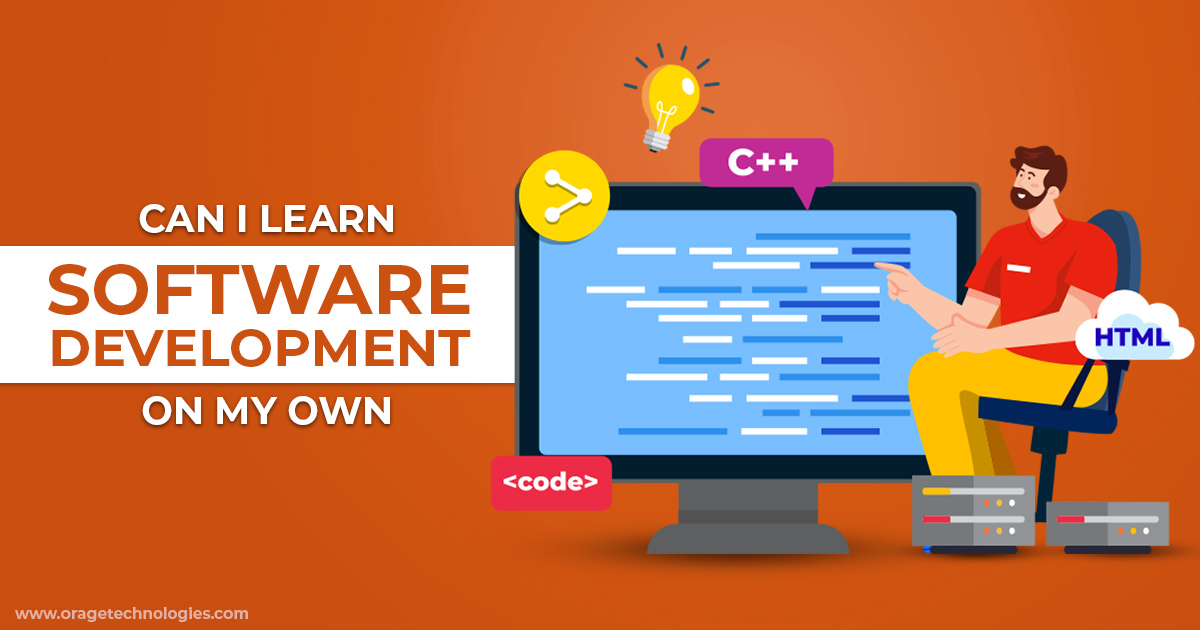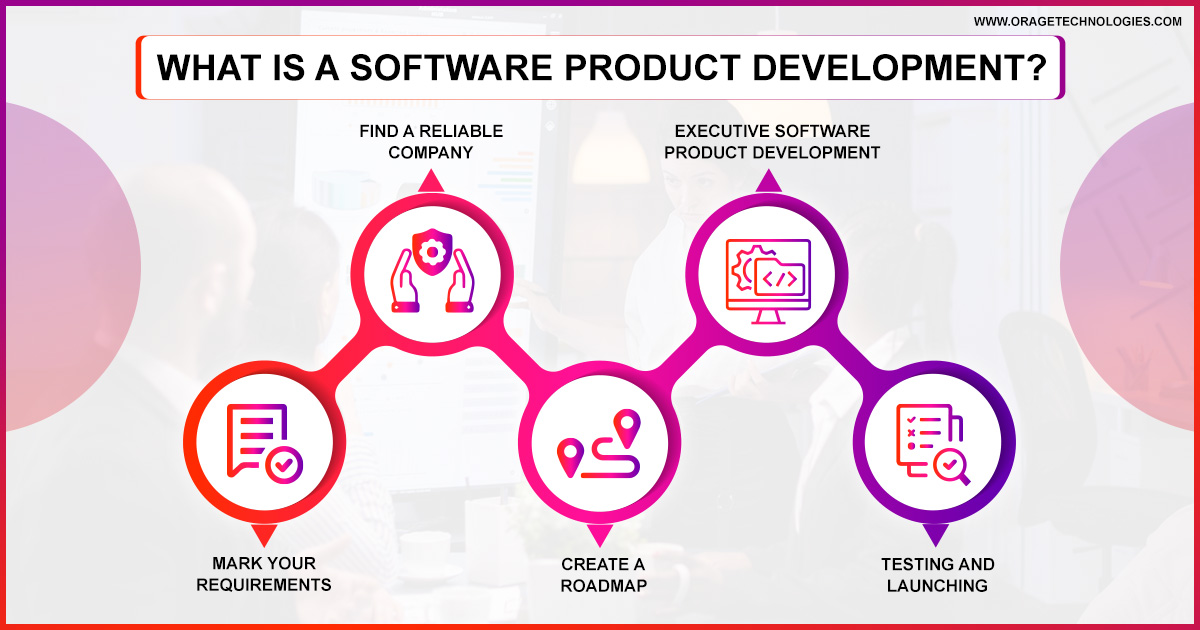Software engineers are the heroes of the digital sector. A software engineer develops, designs, and tests computer systems and software applications. They possess a deep knowledge of programming languages, software development methodologies, and algorithms, allowing them to develop effective solutions for multiple applications.
Software engineering can be both challenging and fun, with possibilities to work in any industry, including small and large businesses, healthcare facilities, government agencies, and more. And as technology evolves, the need for software engineers also grows.
Today, we will share how you can be a software engineer without a degree, its benefits, salary, and many more important aspects.
What Is A Software Engineer?
A software engineer is a computer science professional who uses programming languages and engineering principles to develop software products. An engineer develops mobile and web applications and also runs network control systems.
In addition to building their own systems, a software engineer also improves, test, and maintain software built by other engineers. There are several benefits of studying software engineering, including opportunities for growth, good salaries, high demand, flexible schedules, and many more. Their roles, responsibilities, and day-to-day tasks include:
- Designing and maintaining software applications or systems
- Optimizing software for scalability and speed
- Testing and writing code
- Testing and evaluating new software programs
- Developing and enforcing IT standards within an infrastructure
- Assuring platform compatibility
- Maintaining IT systems documentation
- Collaborating with senior systems architects, development teams, and data science professionals
- Releasing software updates
- Consulting with security specialists, engineers, clients, and other stakeholders
- Offering the latest features to stakeholders and internal customers
- Recommending software upgrades for existing systems and programs
Types Of Software Engineer and Salary:
The field of software engineering is vast, with different roles based on the complexity of applications. Engineering functions have various types of software engineers in their teams. Some of the most famous types of software engineer roles are:
Front-End Engineer
A front-end developer is one who has a specialization in the development of the UI (User Interface). A front-end developer deals with cross-browser compatibility and fixes bugs to ensure an outstanding visual presentation of the user interface.
Skills: HTML, CSS, JavaScript, TypeScript, cross-browser compatibility, Testing and debugging, frameworks and libraries, and APIs.
Average Salary: $120,632 per year
Back-End Engineer
Any software engineer who specializes in the underlying logic and performance of the app is known as a back-end engineer. They usually design and execute the core logic, keeping scalability in mind.
Skills: JavaScript, HTML5, NodeJS, jQuery, CSS3, JS, ReactJS, AngularJS, VueJS, ES2015+.
Average Salary: $147,662 per year
Full Stack Engineer
A software engineer who can manage both back-end and front-end work is called a full-stack software engineer. They have all the skills that are needed to develop a fully functional web application.
Skills: UI and UX frameworks, JavaScript, Java, CSS, C, C++, HTML, Python, Ruby, Scala, Perl, Kubernetes, Go, Apache Mesos, Docker, Jenkins, HashiCorp stack (Vault, Nomad, Terraform, Consul).
Average Salary: $170,000 per year
DevOps Engineer
Software engineers who have knowledge of the technologies needed for the development of systems to deploy, build, integrate, and administer back-end software and distributed systems are known as DevOps engineers.
Skills: Python, PHP, Ruby, Perl, C++, Java, Apache Ant, Apache Maven, Jenkins, Git, GitHub, Bash, Shell, Node.js.
Average Salary: $133,115 per year
Data Engineer
Data engineers handle operations like Data Mining, ETL, Database Management, Data Warehousing, and many more. They help developers and test engineers with the data infrastructure used to ensure the application’s seamless functioning.
Skills: SQL, NoSQL, Python, AWS, Kafka, Hadoop, Data Warehousing, Database Management, ETL, Apache Spark, Google Cloud Platform, GCP Data Engineering Skills.
Average Salary: $151,425 per year
Security Engineer
A software engineer who is a professional in creating procedures, systems, and methods to test the security of a software system and fix any flaws is known as a security engineer.
Skills: Python, Power Shell, Java, Go, Nord, Ruby, C++, Penetration and vulnerability testing, MySQL, UNIX, Windows, and Linux operating systems.
Average Salary: $152,773 per year
Cloud Architect
Platforms and applications move into the cloud servers, and cloud architects are the ones who manage the cloud-based infrastructure and its operations. From Cloud Management and Monitoring to Migration, a cloud architect takes care of everything.
Skills: Java, C#, Python, Data Storage Expertise, Cybersecurity, AWS service selection, cloud-specific technologies and patterns.
Average Salary: $175,453 per year
Software Development Engineer in Test
Software Development Engineers in Test (SDET) are developers who are professionals with testing skills. They are also responsible for testing along with development.
Skills: Exposure to BDD, Agile+ DevOps exposure, Testing methodology, programming, designing, time management, and organization skills.
Average Salary: $137,448 per year
Software Engineer in Test (QA Engineer)
A QA Engineer creates manual tests, test plans, and automated tests using frameworks and tools to ensure that processors and products run as expected.
Skills: Node.js, PHP, Java, Python, Ruby, Functional testing, unit testing, UI testing, Cross-browsing testing, JUnit, TestNG, Scrum and Agile.
Average Salary: $95,168 per year
How To Become A Software Engineer Without A Degree?
There are some steps you can take to become a software engineer without a degree. If you are also thinking of starting your career in software engineering from scratch, follow the steps below:
Get Certified: Step 1
Web development Bootcamp programs can fulfill your requirements without having a degree. You can opt for a short-term software engineering beginner course that will help you start your software engineering career with a decent salary. Additionally, boot camps normally range from 6-7 months. There are many boot camps where you enroll yourself, including full-stack developers, IT support professional certificates, coding courses, etc.
Learn Coding: Step 2
C++, Java, Python, and JavaScript are some software development programs in high demand nowadays. Along with CSS and HTML certifications, these are some of the coding software that can help you to have new career opportunities. It’s an ever-growing dimension of software programming in which most software development organizations and corporations are interested.
Find Projects: Step 3
Practicing what you have learned is the key to leave a long-lasting impression on employers. Practicing and implementing the programs will help you to have a better command of a specific topic. Working on projects is equal to applying those skills gained through the courses. Some of the certificate courses offer these benefits along with their learning schedule.
Create A Portfolio: Step 4
Now, it is the time to create and work on your portfolio. Build a resume and start grabbing the best software engineer jobs. Your portfolio must include your education profile, work experience, and certifications, with a unique domain name. You can also add your previously accomplished projects to show a preview of your experience. Additionally, it will help to grab the attention of the recruiters towards you.
Practice Interview Skills: Step 5
Recruiter’s interview questions might sometimes be difficult to answer. Along with technical knowledge, soft skills like communication skills play an important role. Some software engineer interview questions include “What is the purpose of selecting software engineering as a profession?” or “Why are you thinking of switching professions at such a stage of your life?”. You have to prepare yourself to answer these questions easily. This will help you to upskill your knowledge and confidence and also help you to motivate yourself toward your goal.
How To Learn Software Engineering For Free?
Software engineers are currently in demand right now, with the occupation set to expand at an above-average rate of 25% between the year 2021-2031, according to the Bureau of Labor Statistics, US. so, if you are searching for how you can learn software engineering for free, you have come to the right place. We have curated a list of the free software engineer course list and their resources below.
Udacity
Udacity collaborates with various different big brands like Google, Amazon, and Microsoft to offer knowledgeable content related to software engineering. They also have intermediate, advanced, and entry-level software engineer courses.
Number of free resources/courses: 100
Coursera
On Coursera, many software engineering courses come directly from big companies like Microsoft, IBM, and Meta. also, some other course offerings come from universities like Princeton, Columbia, Duke, or Yale.
Number of free resources/courses: 1500+
edX
Similar to Coursera, edX is also an amazing resource for a software engineer looking to advance his career. Many of its high-quality courses are available for free, and its website is exceptionally user-friendly.
Number of free resources/courses: 150
freeCodeCamp
freeCodeCamp primarily consists of free-to-access tutorials and blog posts. This site has something for every software engineer of every level. Additionally, if you have any doubts about coding languages, it is easier to search for an answer via this website.
Number of free resources/courses: 10,000+
Udemy
Udemy has a list of free course offerings that are incredibly easy to find out. Also, their courses cover an impressive topic range, including various coding techniques and languages, different data structures, several algorithms, and also career development tips.
Number of free resources/courses: 150
Hackr.io
Hacker.io is similar to freeCodeCamp, providing various blog posts covering software engineering topics. There is also a list of several courses, tutorials, and certifications aimed at helping software engineers to develop their skills.
Number of free resources/courses: 700+
Software Engineer Vs Software Developer
One of the reasons that everyone confuses software developers with software engineers is that both jobs can have significant overlap. This comes from the required knowledge and skills a software engineer needs and the fact that several software developers become engineers over the course of their particular careers.
| Parameter | Software Engineer | Software Developer |
| Main Function | Design the software’s components and systems | Program the software’s components and systems |
| Main Output | Documentation | Code |
| Project Scope | Has a continuous overview of the entire project | Works on a local scale and in typical systems but can have an overview of the project when needing to interface with other systems |
| Problem-solving and Design | System-wide at a low level | Project-wide at a high level |
| Team Interaction | Communicates and works on the design with the entire team continuously | Can share with team members directly involved in their work but will otherwise usually work by themselves |
| Programming | Requires knowledge | Requires both application and knowledge |
| Salary | $110k on average yearly | $100k on average yearly |
Final Words:
Software engineering is ever-evolving since software programs are used in practically every aspect of today. In this complete guide, we have mentioned how you can become a software engineer without any degree. Also, this guide will tell you the types and salaries of software engineers.
Frequently Asked Questions (FAQs):
A software engineer researches, designs, and writes new computer operating systems and software programs.
Software engineers at the entry-level get an average annual salary of $99,366.
A bachelor’s degree in computer science, computer programming, mathematics, software engineering, software development, or a similar field.
A software engineer’s salary tends to be higher than that of programmers or developers.
Advanced mathematical skills are not needed for professional software engineers.
A Bachelor’s degree, which is a four-year full-time course, is usually required to become a software engineer.












